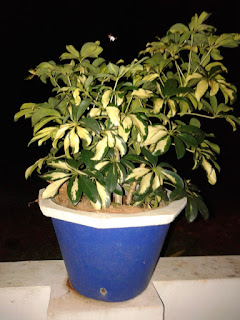Detachment
Holy men are
detached from everything. Attachment is
a sin that arises from ignorance.
Ignorance prevents us from attaining the realisation that everything on
the earth is maya, illusion. Ordinary mortals live in illusion. So they are attached. Attached to their family. To money.
Possessions.
Holy men are
not attached to anything. That’s why
they don’t even marry. They are not
attached to people.
But, as some jester
said, even holy men have one flaw or another.
Otherwise they wouldn’t be just holy; they would be gods.
We don’t know
if the jester is entirely right. The jester
is just an ordinary mortal. And he is
making a judgment about a mortal many times greater than him. If a man many times greater has at least one
flaw, if not more, then how many flaws does an ordinary mortal like the jester suffer
from? Simple logic makes us suspect the jester’s
claim. He being an ordinary mortal
suffers from many flaws. Therefore his logic
must suffer from many flaws. Corollary: The Baba may not have any flaw at all. QED. My faith is very logical, you see.
The jester
said that Anantananda Baba, by virtue of being a man, must have at least one
flaw.
“What’s the
flaw?” I asked.
“His
attachment to land,” answered the jester. Wherever Anantananda Baba fancies to set up an
ashram he procures land by hook or by crook.
“He’s trying
to serve the people by setting up his ashram,” I said. “The Baba sets up ashram, convenes Satsangs,
preaches spirituality and thus ensures moksha for the people after death.”
“But he swindles people in order to procure the
land he fancies,” protested the jester. “The
Baba uses unfair methods to get the land.”
The Baba had
recently bought acres of land near the jester’s house by evicting people using
political clout. In the name of
development. The people were promised a
lot of alternatives. But one the deed
was settled, the Baba forgot his promises as usual. Not entirely.
You would get something provided you became his devotee.
The jester
became a devotee to see what he could get in addition to the moksha which he
would surely get after death thanks to the Baba. What about the life before death?
The jester
listened to the homily during the very first Satsang convened in the newly
acquired plot of land.
The Baba dished
out the recipe of happiness to his devotees very generously. Do you want to be happy, my children? He began.
It is so easy to be happy. Let me
give you the keys to happiness. The
first key, you must let go what is gone.
It may be your job, your land, your crops, anything. Let go what’s gone. That’s the first key.
And here’s the
second key. Be grateful for what remains. Everything is never taken away from you. Something always remains. Your health.
Your willingness to work. Your
devotion to your guru. Be grateful.
Happiness is
so easy to attain. There’s only one more
key. Just one more. And that is: look forward to what awaits you. Don’t just look. Achieve it.
Work for it.
The jester
laughed as he gave me the keys to happiness.
“You work and don’t complain. The
Baba will come and snatch your work at the right time. You will get moksha in the next life.
Hahaha...”
 |
| Source: Matheikal's Garden The bright spot in the background is the moon |
I took the
keys seriously. And planted some saplings
in my garden. Here’s one of them. I’m at the peak of happiness whenever I look
at each plant. The Baba is right.
“Wait,” says
the jester. “You are getting attached to
your garden. One day the Baba will come
to teach you detachment and deliver you from maya.”
PS. This post was inspired by a Whatsapp message I received this morning from an ex-colleague. The three keys of happiness were given by him. Thanks, friend. I know you are no jester. Sorry for taking that liberty for the sake of fiction. Fiction?
This one should become the thirty fourth story of your book. Perhaps you have more of such in your satchel :)
ReplyDeleteCertain occasions inspire my stories. Most of the stories in that anthology were inspired by a Baba and his people indirectly mostly. So is this one. And many more in the future probably especially since the Baba has an ashram in Kochi too!
DeleteThe world would indeed be a happier place, if we just had a God and no godmen!
ReplyDeleteAmen to that a thousand and one time 😊
DeleteNice tips for upcoming Babas. :)
ReplyDeleteThere are many who are already practising it. I learnt from them 😊
DeleteThat a very good satire which is the reality prevailing all around. We are thugged by godmen time and again, still don't open our eyes and see the truth, the bare one.
ReplyDeleteI have personal experience and that is why the conviction.
DeletePunch after punch in the faces that earn them by deeds. Though I can't fully disagree with the keys.
ReplyDeleteI too don't disagree with the keys. That's why I had to create fiction.
DeleteI love to read ur knowledgeable articles sir,its too good.
ReplyDeleteMost welcome to this humble space.
Delete